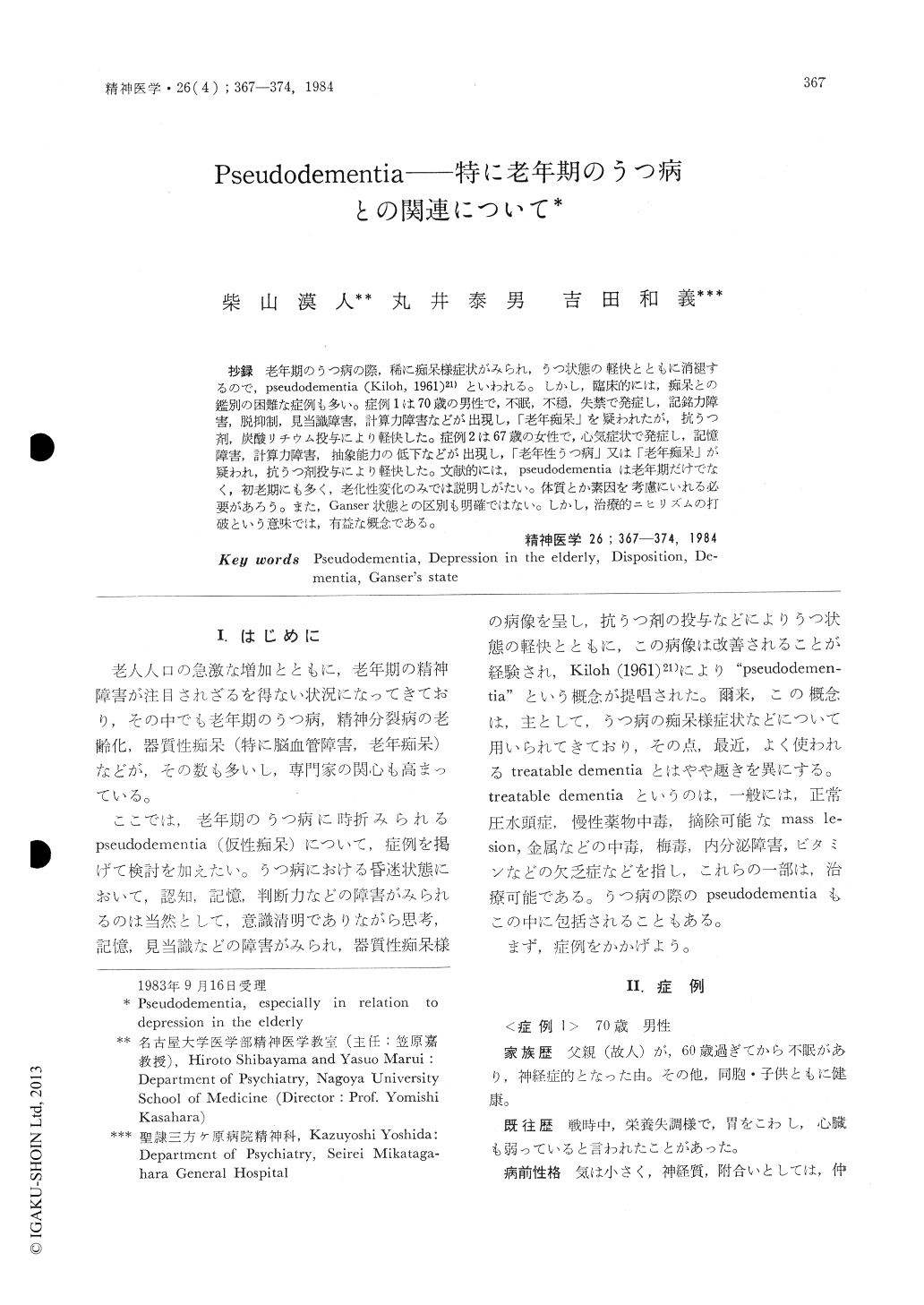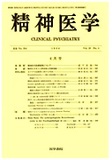Japanese
English
- 有料閲覧
- Abstract 文献概要
- 1ページ目 Look Inside
抄録 老年期のうつ病の際,稀に痴呆様症状がみられ,うつ状態の軽快とともに消褪するので,pseudodementia(Kiloh,1961)21)といわれる。しかし,臨床的には,痴呆との鑑別の困難な症例も多い。症例1は70歳の男性で,不眠,不穏,失禁で発症し,記銘力障害,脱抑制,見当識障害,計算力障害などが出現し,「老年痴呆」を疑われたが,抗うつ剤,炭酸リチウム投与により軽快した。症例2は67歳の女性で,心気症状で発症し,記憶障害,計算力障害,抽象能力の低下などが出現し,「老年性うつ病」又は「老年痴呆」が疑われ,抗うつ剤投与により軽快した。文献的には,pseudodementiaは老年期だけでなく,初老期にも多く,老化性変化のみでは説明しがたい。体質とか素因を考慮にいれる必要があろう。また,Ganser状態との区別も明確ではない。しかし,治療的ニヒリズムの打破という意味では,有益な概念である。
Pseudodementia, a nonspecific syndrome mimicking dementia, is rarely associated with depression in the elderly. Clinically, however, there is much difficulty in differentiating between pseudodementiaand true dementia. The authors report two cases of depression manifesting as false organic brain syndrome in the old patients. Case 1. Mr. A, a 70-year-old manager of tea shop, had displayed insomnia, restlessness, urinary incontinence, loss of restraint, impairment of memory, disorientation and acalculia. The electroencephalogram was within normal limits. Antidepressants and lithium carbonate were prescribed. He was improved and returned to his job. Case 2. Mrs. B, a 67-year-old housewife was hospitalized because of hypochondriacal syndrome, memory disturbance, acalculia and disability for abstraction. On the WAIS, estimated full scale IQ was 78. Antidepressant medication was started. The patient's pseudodementia began improving and within 6 months she completely recovered. She had full scale IQ of 100. The electroencephalogram and CT-scan were entirely within normal limits, as were blood B-12 and folate levels and thyroid function studies. The analysis of our cases and the literature is summarized as follows : (1) There are a group of patients with pseudodementia among depressive patients. It is too severe to blame the psychiatrists for their misdiagnosis because of the difficulty of differentiating depression from dementia. (2) Not only in the senium but in the presenium there are many patients with pseudodementia. Therefore the pathogenic factors such as constitution or disposition as well as senile change or aging should be taken into consideration. (3) The concept of "pseudodementia" is useful in order to hit the therapeutic nihilism. (4) In ordinary depression, pseudodementia is not a major symptom but relatively a rare symptom. Moreover the cognitive impairment in the elderly suggests high probability of being organic brain syndrome rather than pseudodementia. (5) Clinically it is not clear to distinguish pseudodementia from Ganser's state.

Copyright © 1984, Igaku-Shoin Ltd. All rights reserved.


